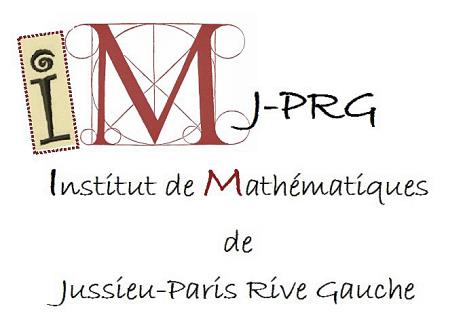CONFERENCE
XVII International Luminy Workshop in Set Theory
XVII Atelier International de Théorie des Ensembles
9 – 13 October 2023
Scientific Committee
Comité scientifique
Mirna Dzamonja (CNRS, Université de Paris Cité)
Menachen Magidor (The Hebrew University of Jerusalem)
Jouko Vaananen (University of Helsinky)
Hugh Woodin (Harvard University)
Organizing Committee
Comité d’organisation
Vera Fisher (University of Vienna)
Boban Velickovic (Université de Paris)
Matteo Viale (University of Turin)
Set Theory has a special role in mathematics: on one hand it is the study of infinite sets and their properties, on the other it serves as the foundations for all of mathematics and therefore has philosophical significance. The combinatorial tools developed in the study of infinity have been applied in areas such as: topology, analysis, measure theory, ergodic theory, homological algebra, etc. On the foundational side set theory studies new axioms for mathematics and evaluates their consistency and truth.
The Luminy workshops in Set Theory have been taking place since 1990. The goal of these meetings is to present the most important recent advances in set theory and its interactions with other disciplines, and also to promote new promising directions in research. The scientific level of these meetings is very high, we usually have around 10 ICM speakers, 2 ERC grant holders, experts from leading universities around the world, as well as some of the most promising young researchers. These meetings reinforce the attractiveness of France and Europe in this subject and help to keep the set theoretic community together.
The program committee chooses 2-3 themes and invites renowned researchers to give mini courses on these topics. It also selects around 60 participants making an effort to maintain geographic, gender, age and thematic diversity. The scientific program is then made by the participants themselves who propose lectures on their recent work.
La théorie des ensembles joue un rôle particulier en mathématiques : d’une part, elle étudie les ensembles infinis et leurs propriétés, d’autre part, elle sert de fondement des mathématiques et revêt donc une importance philosophique. Les outils combinatoires développés dans l’étude de l’infini ont été appliqués dans des domaines comme la topologie, l’analyse, la théorie de la mesure, la théorie ergodique, l’algèbre homologique, etc.
Les ateliers de Luminy en théorie des ensembles ont lieu depuis 1990. L’objectif de ces rencontres est de présenter les plus importantes avanc ées récentes en théorie des ensembles et ses interactions avec d’autres disciplines, ainsi que de promouvoir de nouvelles directions de recherche. Le niveau scientifique de ces réunions est très élevé, nous avons habituellement environ 10 conférenciers de l’ICM, 2 boursiers de l’ERC, des experts de grandes universités du monde entier, ainsi que certains des jeunes chercheurs les plus prometteurs. Ces rencontres renforcent l’attractivité de la France et de l’Europe et maintiennent la cohésion de la communauté.
Le comité de programme choisit 2 thèmes et invite des chercheurs renommés à donner des mini-cours sur ces sujets. Il sélectionne également environ 60 participants en s’efforçant de maintenir une diversité géographique, de genre, d’âge et de thèmes. Le programme est ensuite élaboré par les participants eux-mêmes qui proposent des conférences sur leurs travaux récents.
SPEAKERS
David Aspero (University of East Anglia) TBA
Jeffrey Bergfalk (University of Barcelona) Infinitary combinatorics and condensed mathematics
Christina Brech (University of São Paulo) Density cardinals
Filippo Caleroni (Rutgers University) The Borel complexity of the space of left-orderings
Raphaël Carroy (University of Turin) Continuous reducibility is a well-quasi-order on continuous functions between Polish 0-dimensional spaces
David Chodounský (Charles University) Colors of the Pseudotree
Sean Cox (Virginia Commonwealth University) Predicting non-continuous functions
Vincenzo Dimonte (University of Udine) Regularity properties in singular generalized descriptive set theory
Natasha Dobrinen (University of Notre Dame) Regularity properties in singular generalized descriptive set theory
Matthew Foreman (University of California, Irvine) Stronger Games on Filters
Joel David Hamkins (University of Notre Dame) The surprising strength of second-order reflection in urelement set theory
Michael Hrusak (National Autonomous University of Mexico) Invariant Ideal Axiom
Chandrashekhar Tanmay Inamdar (Ben-Gurion University of the Negev) On strong chains of functions
John Krueger (University of North Texas) Forcing over a free Suslin tree
Wieslaw Kubis (CAS Praha / UKSW Warsaw) Two-dimensional Fraisse limits
Aleksandra Kwiatkowska (University of Münster) Dendroids and other compact connected spaces via the projective Fraisse limit constructions
Philipp Lücke (University of Barcelona) Weak compactness cardinals for strong logics
Dominique Lecomte (Sorbonne Université Campus Pierre et Marie Curie) Descriptive properties of the irrationality type
Andreas Lietz (Vienna University of Technology) A Journey Guided by the Stars
Diana Carolina Montoya Amaya (Vienna University of Technology) Cardinal characteristics and singular cardinals
Justin Moore (Cornell University) Minimal non-sigma-scattered orders
Luca Motto Ros (University of Turin) On the structure of graph homomorphisms
Sandra Müller (TU Wien) Generic absoluteness for the definable powerset of the universally Baire sets
Lionel Nguyen Van The (Aix-Marseille Université) Revisiting the canonical Erdös-Rado theorem
Hiroshi Sakai (Kobe University) Higher reflection principles and cardinal arithmetic
Grigor Sargsyan (IMPAN) Forcing over determinacy
Ralf Schindler (University of Münster) Martin’s Maximum with an asterisk
Philipp Schlicht (University of Bristol) Determinacy, regularity and iterated forcing
Dima Sinapova (Rutgers University) The tree property and stationary reflection
Zoltan Vidnyanszky (Eotvos Lorand University) The CSP Dichotomy in the choiceless context
Alessandro Vignati (Université Paris Cité) Automorphisms of reduced products
Trevor Wilson (Miami University (Ohio) Weak forms of Woodin cardinals and Vopenka cardinals
Jindrich Zapletal (University of Florida) Algebraic hypergraphs and Vitali sets






